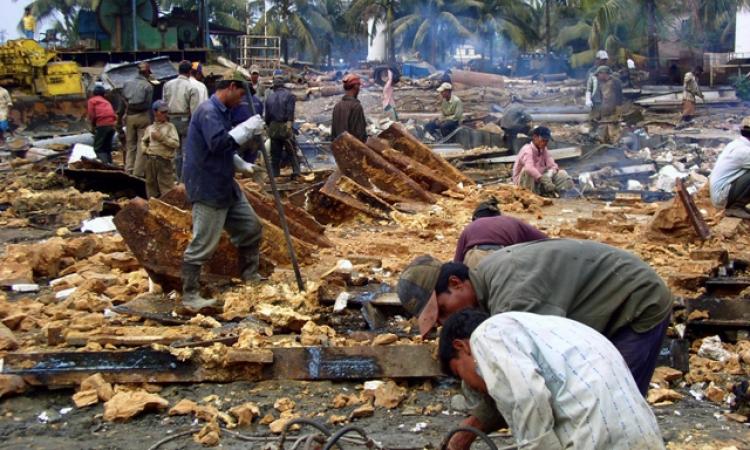
10,000 Bihar villagers file petition against asbestos plant
More than 10,000 villagers from Vaishali have submitted a petition to the Bihar State Pollution Control Board (BSPCB) against an asbestos plant in the district. The villagers have sought disapproval of the West Bengal based Utkal Asbestos Limited's (UAL) application for consent to establish. Trade in asbestos waste and mining is banned by the Central Government due to its hazardous nature and the risk of lung cancer. The UAL site falls within 200-300 metres of a state highway, railway line, river and human habitation, which goes against the BSPCB guidelines of 500 metres for Red category industries. Despite this, the Central Environment Ministry granted clearance to UAL. In a PIL filed before the Patna High Court, the Court ordered the BSPCB to act in accordance with the law.
Kashmiris oppose Kishanganga dam
Even as the International Court of Arbitration has decided in India's favour over the Kishanganga dam issue in Jammu and Kashmir, Kashmiris are against the 330 MW hydropower project in Bandipora district. The State government has imposed a restriction on civilian movement after local residents protested against the compensation offered. According to residents, dam construction by the National Hydro Power Corporation has shut freshwater sources in addition to dumping waste from the project into the river and contaminating their drinking water. Pakistan had raised objections to the dam as it would lower the natural flow in the cross border Kishanganga river.
Water for Mumbai means tribal displacement
12 dams, planned to provide water to the Mumbai Metropolitan Region, will hit more than one lakh tribals and submerge 22,000 hectares of land, including 7,000 ha of forest, says a study by South Asia Network on Dams, Rivers and People (SANDRP). Out of the 12 dams, nine are in Thane district, two in Raigad and one in Nashik. All of them, however, fall in the eco-sensitive zone of Western Ghats. According to the study, water supply in Mumbai is enough for a population of 12.5 million but leakage constitutes 25% of the supply, which needs to be checked.
Narmada water floods salt pans in the Little Rann of Kutch
At a time when salt, made out of brine from the underground water in the Little Rann of Kutch, was just about to crystallize, water from the Narmada canal flooded the salt pans, affecting the livelihoods of thousands of salt pan workers. The release of fresh water from the canal destroyed a road collectively funded and constructed by salt workers inside the Rann to ease salt making operations. It also hit the temporary government schools meant for the salt workers' children. According to the salt workers, even as so much drinking water goes waste every year this way, they have to struggle for drinking water in peak summer.
POSCO violates NGT order
In sheer violation of a stay order by the National Green Tribunal, the Korean steel company POSCO has began construction of a boundary wall around its 1700 acre project site in Odisha's Jagatsinghpur district. According to activists, the company has been felling trees at the site in Nuagaon Gram Panchayat and hired goons to prevent locals from protesting. The Company, however, says that the residents are cooperating in the construction of the 12.5 km long boundary wall. The US $12 billion steel project is billed as the country's biggest Foreign Direct Investment project.
This is a weekly roundup of important news from December 15-21. Also read last week's policy matters updates.